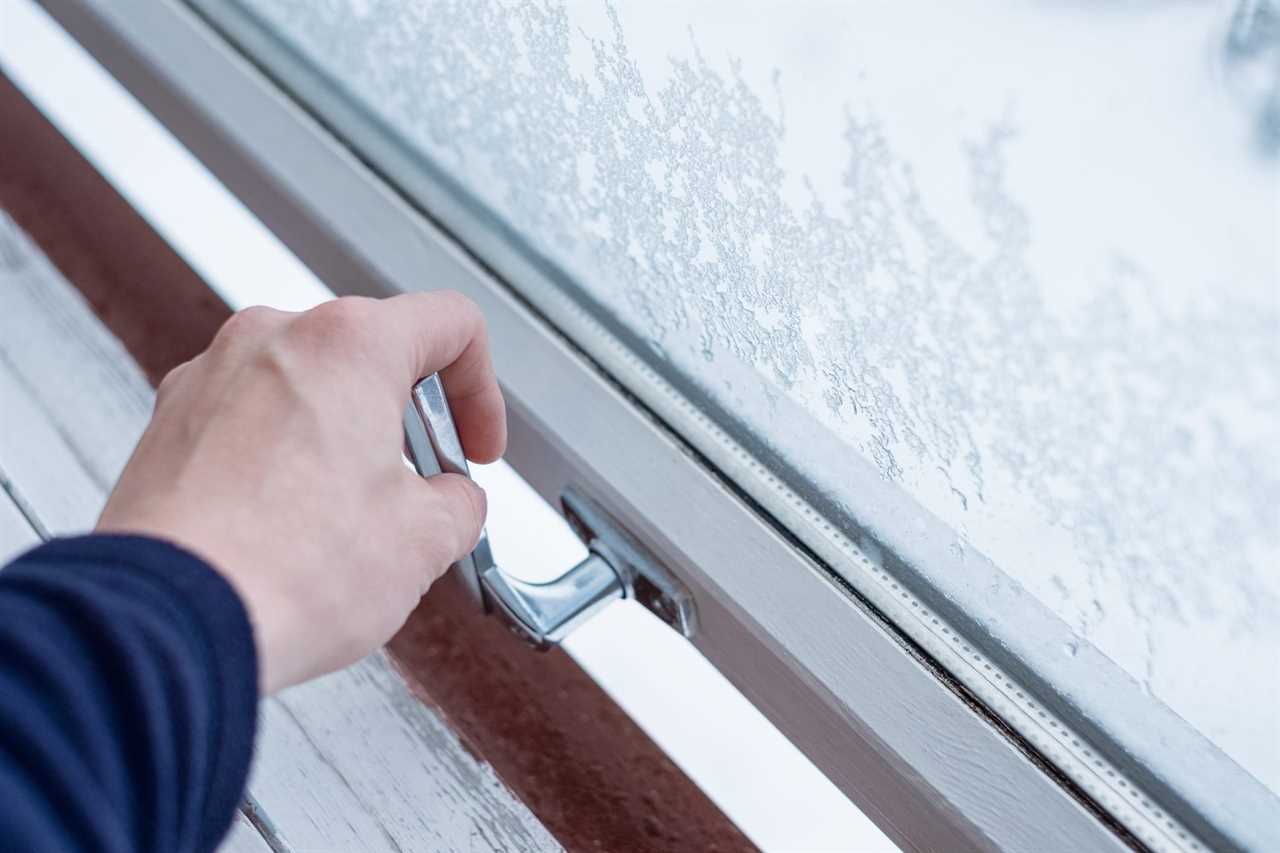Nights are getting chilly, leaves are falling and days are growing shorter. Winter is just around the corner.
For some of you, that means winterizing your home, making soups and crusty warm breads and tucking in for a long, cold winter. Others laugh in the face of a few snowflakes and a stiff north wind. You like fresh air!
I’m in the latter camp. I’d rather wear mittens indoors than feel claustrophobic and stuffy. Most of the year, you’ll find my windows open, and I wait a long time before turning on my furnace.
But is leaving a window open year round a good idea? I talked to heating, ventilation and air conditioning (HVAC) expert Brad Roberson, president of Aire Serv, and Allen Rathey, director of the Indoor Health Council, to find out.
Benefits of Leaving a Window Open
Great news! There are plenty of benefits to letting fresh air into your home.
Rathey says houses built in the last 50 years are much more airtight than ones built prior to the oil embargoes of the 1970s. That makes newer homes more energy efficient, but there’s a downside: less fresh air exchange. Air that used to vent through drafty windows, doors and attics now simply recirculates through your home.
Throwing open a window to exchange stale air offers several specific benefits:
- Improved air quality: Opening a window can reduce indoor air pollutants like carbon dioxide, vapors from cleaning products and cooking fuel byproducts.
- Humidity control: Dry winter air can do a number on your skin and lungs. “Fresh air can help regulate indoor humidity levels,” Roberson says, “preventing excessive dryness.”
- Odor removal: Even with a range hood or exhaust fan, cooking smells permeate every nook and cranny of your home. If you’ve ever lived over a restaurant, you know what I’m talking about.
- Mental well-being: Darkness at 5 p.m. can be kind of depressing, but opening a window may help. “Some people find fresh air invigorating,” Roberson says, “and it can help improve your mood and overall sense of well-being.”
Should You Leave a Window Open Year-Round?
That depends on your specific circumstances and preferences.
“Leaving a window open year-round is generally not advisable,” Roberson says. “In the winter, it’s usually more energy-efficient to keep windows closed to conserve heat, while in the summer, you might want to open windows to ventilate your home.”
When you open the window, your HVAC unit kicks in make up for the loss of heat or cool air that escapes. That could reduce the energy efficiency of your unit, Roberson says, and raise your energy bill. You may decide the fresh-air benefits outweigh a slight bump in cost, however.
“If you’re trying to improve indoor air quality, control humidity, or simply enjoy the benefits of fresh air, opening a window occasionally may be helpful,” Roberson says.
“The key is to strike a balance, ensuring that it doesn’t lead to excessive heat loss or discomfort. Using a window briefly during milder winter days can help achieve the benefits without causing your HVAC system to work excessively hard.”
Remember, too, your wallet and HVAC aren’t all that take a hit from wasted heat. Fossil fuel consumption directly contributes to climate change. So be judicious.
Leave a Window Open in Winter If…

Window openers, we’re in the clear, at least some of the time. If it’s a beautiful Texas day and you want some fresh air, turn off your HVAC and enjoy. But in Minnesota, if you’re snuggled under mountains of blankets and want to crack open the window while you sleep? Up to you.
“There is no ‘one-size fits all’ when it comes to our indoor spaces,” Rathey says. Let climate, humidity, air quality and other factors specific to you and your family inform your decision. “You can leave a window open in the winter,” Roberson says, “but it’s important to be selective about when and where.”
Consider leaving a window open…
- In stuffy or humid rooms:Kitchens and bathrooms benefit from fresh air exchange by reducing odors and moisture, but it’s best to keep your indoor relative humidity between 35% and 55%. “An inexpensive temperature and relative humidity meter can help show impacts from a slightly opened window,” Rathey says, “and flag you to close it when too much damp/cold air enters.”
- When outdoor air quality is good: Air pollution contains volatile organic compounds (VOCs), which are harmful to your lungs. When you allow fresh air into your home, Rathey says, “Dilution of VOC may reduce impacts to those with chemical sensitivities unless the outdoor air is more polluted than inside.” Check your local air quality index at AirNow.gov to make sure.
- On sunny and warm(er) days:Give your HVAC a break by taking advantage of good weather and natural heat from the sun. If you’re sensitive to airborne allergens and dust, ventilating may reduce these contaminants, Rathey says. Pay attention to humidity, though. Mold spores proliferate in wetter environments.
- If your windows have locks: “An open window can be an entry point for intruders,” Roberson says, “especially when you’re asleep or not at home.” Rathey says putting sash locks on your windows, allowing them to open a few inches and no more, can mitigate security concerns.
Did you miss our previous article...
https://rsssuperfeeds.com/life-hacks/ten-plants-that-help-you-keep-weeds-out-of-your-garden






